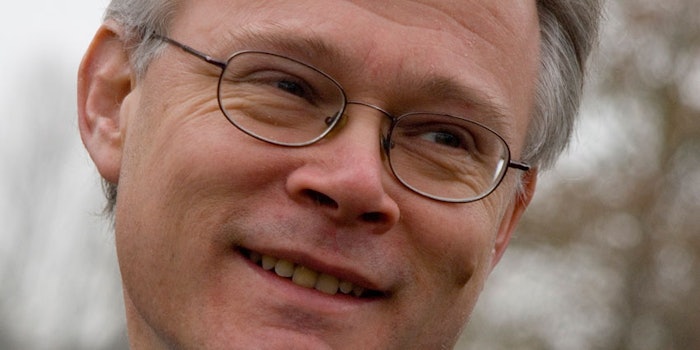
Editor's note: Our "Words from Wiechers" series considers the lessons our industry can learn from the late Johann Wiechers, Ph.D. He was an adviser, colleague and leader in the industry until his unexpected passing. Presenting Wiechers's insights is Tony O'Lenick.
This column reviews Chapter 38 of Wiechers's book, Memories of a Cosmetically Disturbed Mind. It contains what I refer to as a classical Johann statement:
“Because we prefer aging over the alternative, we want to get old but not to be old; i.e., we do not want to look old.”
Metaphysics and Quality of Life
In a single, simple English sentence, Johann condenses many contradictory statements into one complex idea. Clearly, living is preferred to the alternative; getting old and being old are different concepts; and looking old is another concept. In one sentence we moved from the metaphysical (life and death) to a quality of life (getting old vs. being old) and finally, the cosmetic concept of looking old.
Much like this sentence from Johann and the understanding of what is implied in it, a deeper look is in order. I was always amazed how Johann, being a non-native English speaker, could craft amazingly complex concepts into a short sentence or two.
Getting old and being old are concepts that measure very different things. Getting old is measured by the calendar and the passage of time. We have little or no control over this part of life. Being old is a state of mind. How we deal with the passing of time and looking old relates to the palliative steps we can take to change (or not) how others perceive our response to the passage of time. This includes attitudes, physical activity and how we approach life.
The person that has the proper attitude embraces a lifestyle that fosters higher energy and the slowing of aging. These activities change our mental state and our biochemical state. Being happy, content and having a quest for life keeps us going. Additionally, the person that wants to avoid being old is likely to avail themselves of the use of cosmetics that can help us in our quest to not look old. Simply put, a lot of what we get out of cosmetic products designed to limit the appearance of aging is visual and related to the state of mind of the user.
Johann goes on:
“All we want is to stay younger for longer. How successful have we been until now? I have seen living examples of elderly people who proudly tell me their age, simply because their looks do not match their age. These also have been the only instances where I've heard people who are 50+ years old proudly state their age. All these proud people looked significantly younger than their calendar age. But why, then, does not everybody look younger for longer if it technically can be done?
Believing is Seeing
"Yes, we do indeed have great active ingredients that can prevent our collagen molecules from being hopelessly tangled. We include them at too low concentrations in formulations that feel great but do not necessarily deliver the active ingredient. But some, obviously, do get it right and the users of those products look younger for longer. But the rest of us, including me, have aged yet another year as we are heading into 2008. Our wrinkles keep deepening as the years go by.”
'Age is an issue of mind over matter. If you don’t mind, it doesn’t matter.'
Perhaps the effectiveness of the products that effectively minimize aging is limited in those who do not believe in the products. Those that firmly believe do, in fact, see the desired effect if only by placebo initially and continue to discover products that provide this cosmetic improvement, while the non-believers give up in a short time.
Stress as an Anti-ager
Johann also links the appearance of signs of aging with the beneficial effects of a small amount of stress.
Johann says, "In normal English, this means that in order to prevent aging, we need a small amount of stress. That is why a restricted calorie intake gives you an anti-aging benefit.
"And I know I am right. Once you realize the necessity of this little bit of stress, everything falls into place. My good friend, [the late] Gavin Greenoak of the Australian Photobiology Testing Facility in Sydney, Australia, gave a beautiful talk at the in-cosmetics India show in Mumbai in November 2007 where, in his very last slide, he showed that mice that were only allowed to eat between 8:00 am and 6:00 pm had much higher minimal erythema dose (MED) values than mice that were allowed to eat freely.
"Two days later, he repeated this talk at the Indian Pharmaceutical Association and indicated Indian [individuals] also had higher MEDs than the rest of mankind. This resulted in a discussion of why this could be. One of the suggestions from the audience was that in contrast to most other races, most Indians have been vegetarians for centuries.
"I hope you make the same connection. These mice whose food intake was limited to a few hours a day were under limited metabolic stress and had higher MEDs. Vegetarians seemingly live under limited metabolic stress and also have higher MEDs. This healthy lifestyle is obviously good for them.
"But what do most of us do? We apply the best anti-aging products whilst we eat too much, drink too much, work too much, sleep too little and have so much stress that our expression takes over. Too much 'too' in our lives is why even our best anti-aging products don’t work for us, unless we get the balance right between lifestyle and product use."
The Lesson
I believe in Mark Twain's view of aging. He said, “Age is an issue of mind over matter. If you don’t mind, it doesn’t matter.” I would also include, in the above statement, "but a healthy lifestyle and properly formulated anti-aging products can sure help the process."









